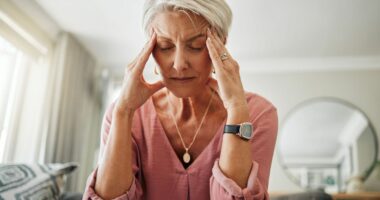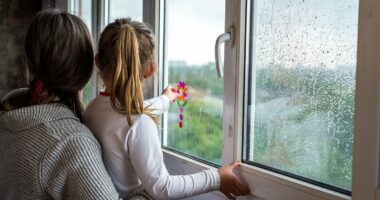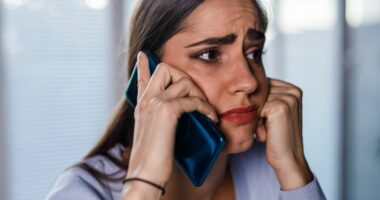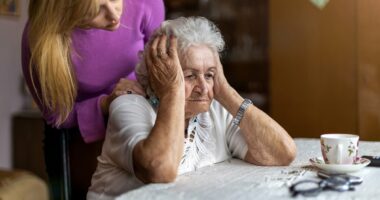Share this @internewscast.com

Proponents say DST gives the country an economic boost (Image: Getty)
Did you remember to put your clock back last night? If so, have you noticed feeling different this morning? The twice-yearly shift between Greenwich Mean Time and British Summer Time — when we lose or gain an hour — can have small but noticeable effects on our sleep and health. So much so that some experts are calling for it to be scrapped altogether.
Did you remember to adjust your clock back last night? If so, have you felt any different this morning? The semi-annual transition between Greenwich Mean Time and British Summer Time, where we either gain or lose an hour, can subtly impact our sleep and overall health. These effects have prompted some experts to suggest abandoning the practice altogether.
Germany pioneered daylight saving time (DST) in April 1916 to conserve energy during World War I. Shortly thereafter, Britain implemented a similar measure. The current system of bi-annual clock changes was officially established in 1972 under the British Summer Time Act, inspired by a campaign led by Kent builder William Willett.
Discover More: These 4 exercises can significantly enhance sleep — study reveals their impact
Gaining or losing an hour of sleep can have small but noticeable effects (Image: Getty)
An hour may not seem like much, but the change can disrupt our circadian rhythms – the body’s internal 24-hour clock that regulates physical, mental and behavioural changes.
Time shifts can be particularly disorientating for people with dementia who sometimes experience confusion, agitation and anxiety later in the day, a phenomenon known as sundowning. Each year, dementia charities issue advice on helping loved ones deal with the clocks changing using techniques such as distraction, sticking to an evening routine and limiting intake of caffeinated drinks.
While an hour might seem trivial, the adjustment can interfere with our circadian rhythms—our body’s natural 24-hour cycle that governs various physical, mental, and behavioral changes.
The time shift can be particularly unsettling for individuals with dementia, who may experience increased confusion, agitation, and anxiety as evening approaches—a condition known as sundowning. Each year, dementia organizations offer guidance on supporting loved ones through the clock change, recommending approaches such as maintaining a consistent evening routine, distracting from anxiety, and reducing caffeine intake.
Disrupted sleep from DST has been associated with exacerbating depression, anxiety, and seasonal affective disorder, and has been correlated with a spike in traffic accidents. Furthermore, the American Heart Association has highlighted a rise in heart attacks and strokes in the days following the spring forward.
“Our circadian rhythm (the body’s internal clock) is finely tuned to light, not social schedules,” he explains. “Even a one-hour shift can disrupt the timing of hormone release, mood regulation, and sleep pressure. In the days after the change we see increased irritability, reduced concentration, and disturbed sleep patterns.
“Physiologically, the evidence shows spikes in heart attacks, traffic accidents and workplace injuries immediately after the shift, especially in spring when we ‘lose’ an hour’s sleep.”
The good news, at least for today, is that the extra hour of sleep we get when the clocks return to Greenwich Mean Time can bring temporary health benefits.
Mr Morley says: “Each year when the clocks go back and 1.6 billion people across 70 countries gain an extra hour in bed, there is a 21% decrease in heart attacks the next day. There’s also a big drop in suicides and car crashes worldwide. That all adds up to tens of thousands of fewer deaths around the world from just one extra hour of sleep.”
However, the change has also accelerated the shift to darker afternoons and evenings, which can affect our mood. Mr Morley adds: “Specifically, two of the biggest factors for good sleep are, one, melatonin and serotonin production and, two, temperature. Both of these aspects change when we transition into autumn.
“Once the clocks have changed and it starts to get even darker earlier, our melatonin production is switched on earlier, so we may start to feel more tired earlier on. Equally, the sun isn’t coming up until later in the morning, so our serotonin production isn’t switched on until a bit later than usual.”
A study published in the Journal of Sleep Research in June involved almost 12,000 people enrolled in the UK Biobank database. It found that people lost an average of 65 minutes of sleep when the clocks went forward in spring and gained 33 minutes when they went back in the autumn.
Last year, the British Sleep Society released a position statement calling for the UK to abolish DST. It argued that people were missing out on “important morning sunlight exposure, jeopardising the optimal regulation of our circadian rhythms and sleep”, particularly during the spring and autumn when sunrises are later.
The Society strongly recommended the UK reinstates Standard Time throughout the year to “minimise any potential health risk from sleep and circadian disturbances”.
Charlie says this, plus a wealth of other evidence from around the world, points to one conclusion: “Daylight Saving Time isn’t just outdated – it’s harmful to public health.”
However, proponents of DST argue it gives the country an economic boost as people have more daylight in the evenings and more opportunities for outdoor leisure activities. Dr David Garley, director of The Better Sleep Clinic, says the case for ditching DST is not so clear.
“Most people do not feel a significant impact of the clocks changing,” he explains. “There is some research suggesting that there are more road accidents when the clocks go forward in spring, as people lose an hour of sleep, though the true magnitude of this problem isn’t clear.
“If you have a pre-existing sleep disorder and then lose an hour of sleep, this could tip the balance in causing excessive daytime sleepiness. However, the timing of daylight can be helpful, and the clocks changing also signifies a seasonal milestone which many people like – so there is a case for both sides.”
Dr Garley recommends taking control of the factors we can influence such as getting up at the same time every day, getting enough exercise, eating healthily, and making the most of daylight hours. “If you are feeling anxious about the clock changes, it’s important to spend some time reflecting on what you feel the problems are. Is it the colder weather, for example? Is it the lack of daylight or the change in routine?
“Once you’ve identified these factors, take a step back and see which of these factors you can change, then take steps to make these changes. Your response to the clock changes is in your control.”
Everyone’s needs are different when it comes to sleep, Dr Garley adds. “There is a range in how resilient people’s sleep is, and when it comes to the clocks changing, some people will naturally feel more affected than others.
“If you are also existing on the lower end of the sleep you need, these changes can have more of an impact compared to someone who regularly has a good quality and quantity of sleep. If you are an individual who feels anxious around the winter period, or perhaps suffers from Seasonal Affective Disorder, you might find that the clocks going back has a greater impact on your sleep pattern.”
Mr Morley similarly advises going to bed a little earlier during the autumn or winter, as well as keeping your bedroom cool. He says: “People do tend to sleep an extra 30-90 mins in the winter, so this is perfectly normal.
“Temperature-wise, actually having a cooler bedroom offers us better conditions and generally speaking, we tend to sleep better and more in winter. However, the transition from summer into autumn is when you might have a touch of ‘sleep jet-lag’ because your serotonin production is changing during the season’s transition, and this might impact your sleep.
“As soon as you wake up, get daylight exposure throughout the day. Try to maximise your natural sunlight exposure, like during your lunch hour, or if this isn’t possible, buy a special SAD lamp. This natural sunlight will help to regulate your sleep cycles.
“Maintain exercise from summer through to autumn. It’s easier for people to exercise during the summer, however, if you can sustain exercise during the transition and into autumn and winter, this will be beneficial as exercise also leads to good sleep.”
